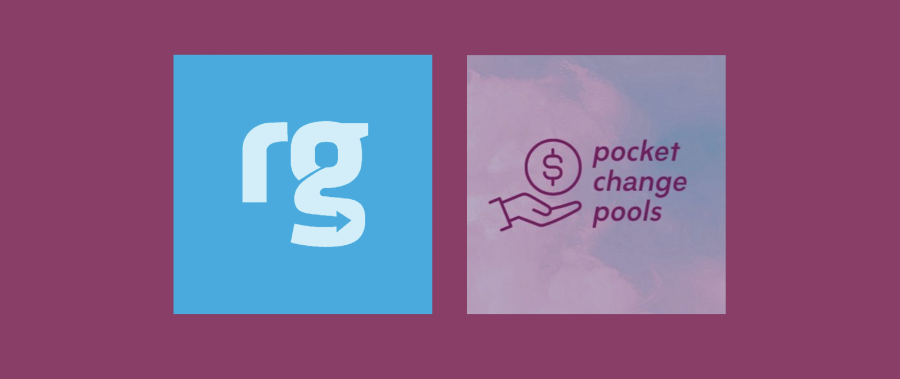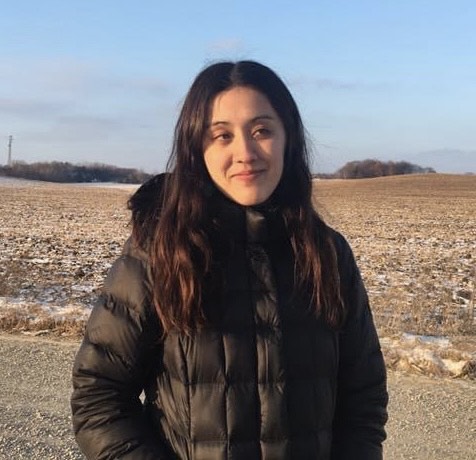In the last year, current and past students have started two mutual aid groups to address economic inequality by redistributing wealth: Resource Generation (RG) at Carleton, and Pocket Change Pools (PCP).
The two groups have both individually donated thousands of dollars, but their approaches to raising funds differ widely.
Carleton’s RG group, which is affiliated with the national organization of the same name, encourages young people with wealth privilege to donate large sums of money to organizations run by BIPOC and low-income activists. Resource Generation, according to the national group’s website, is oriented to the top 10 percent of wealth holders nationwide. Their stated mission is to “work towards the equitable distribution of wealth, land and power.”
RG at Carleton began in the fall of 2019 through informal meetings with students and Minneapolis-based alumni, said Marlena Resnick ’21. Resnick said she joined because of her connections with alumni involved in RG, who brought the group to campus.
“I was interested in the idea of wealth redistribution, but it wasn’t something I was super familiar with,” she said.
According to Resnick, the organization focuses on college students and young adults partly because sharing wealth can be a “radical idea.” Resnick also noted that this demographic have closer relationships with parents who have wealth.
“This group explicitly targets people who identify as having wealth and class privilege,” she said. “In college campuses, this often means some sort of family or intergenerational wealth. We talk about how to have conversations with your family about money and meaningfully redistributing it.”
At elite liberal arts institutions such as Carleton, there is a recognition that many students come from money. For example, data from the college shows that 37 percent of admitted students from the Class of 2024 did not apply for financial aid. According to a 2017 Harvard study, 68 percent of Carleton students come from the top 20 percent of the wealthiest families in the country. RG believes there is potential to access these resources and redirect them in impactful ways.
Resnick also touched on how RG tries to be transparent about wealth. Carleton boasts of an atmosphere of humility and unpretentiousness, which can lead to rich students concealing their resources.
“One of the reasons I was drawn to RG is because money is something people don’t talk about, or they feel uncomfortable admitting they have it,” said Resnick. “There’s so much secrecy and privacy around money, which promotes wealth hoarding.”
Her desire for frank conversations about wealth and interest in redistributing money motivated her to participate in the fundraising activities of RG.
RG members hosted several “giving circles” following the murder of George Floyd. Resnick explained that for these events, members meet over Zoom to be in community and “give boldly.”
“You might give an amount of money that feels uncomfortable because it may be more than you usually donate. Having people around helps and encourages us,” she said.
Focused on unlearning “scarcity mindsets,” RG educates against the socialized beliefs of people with high incomes that there is not enough to go around.
Given the demographics of RG, which is predominantly white and wealthy, the group grapples with how to decenter its whiteness. Resnick said, “We are cognizant that it’s a pretty white group. We are figuring out how to not make this group insular. We don’t want to be patting ourselves on the back for redistributing money.”
Because they are not members of the communities they donate to, the group also struggles to identify which needs to prioritize. “How do you decide who gets priority? That’s really tough,” Resnick said. “We discuss as a group different possibilities, but it is difficult to navigate. We shouldn’t be the arbiters that decide where money goes.”
Pocket Change Pools (PCP) is in several ways the opposite of Resource Generation in its approach to wealth sharing. First, the group is run by three women, two of whom are women of color. PCP began on the personal social media accounts of Josie Naron ’18, which she used to raise money for individuals and groups during the pandemic.
She said that she began raising money after witnessing misdirected spending. “In early June, people were throwing around a lot of money. It was not necessarily going to the places it was most needed. It was an impulse that needed to be unlearned by people,” she explained.
Naron’s fundraising pools gained traction among Carleton alumni on Instagram, and eventually Bomi Johnson ’18 and Janeé “TJ” King joined forces with her to create Pocket Change Pools. Naron said that although PCP started “small,” she had already raised about $90,000 by the time Johnson and King joined her.
King, originally a member of the Class of 2018, is a Black former student who said she left Carleton in 2017 due to the administration’s negligence and racism. She joined Johnson and Naron after witnessing a wave of donations to large, national non-profits that didn’t address the immediate needs of Black individuals.
“In early June, I was really fed up watching money being directed to large national organizations, such as the national Black Lives Matter organization or the NAACP, that are known for not doing anything for Black people,” explained King.
“I was watching millions being funnelled there when I knew there were people who couldn’t afford to eat. I started holding some pools where I redistributed the money to Black people on Twitter asking for help with their GoFundMes,” she said.
Since June, the horizontally-organized, non-hierarchical mutual aid funding collective has redistributed $300,000.
Self described as “a group of anti-racist, abolitionist, anti-capitalist volunteers,” PCP runs “monetary redistribution pools for community-led organizations, autonomous coalitions, mutual aid networks, and individuals.” Two to three pool requests are created on a weekly basis to create a habit of giving, rather than encouraging a one-and-done attitude toward mutual aid.
When choosing who to donate to, PCP acknowledges that the ability to choose who gets money puts these leaders in a position of serious power.
Johnson explained, “It is complicated, and we actively try to balance each other out. It is a lot of power to choose who to pool for, when, what your goal is, and who you do not have capacity to pool. Having the three of us to balance each other out is so important.”
Johnson added that the selection of pools is responsive to changing needs and critical events around the country. To vet for scams, they rely on extensive research and communication with regional community contacts.
Unlike RG, PCP makes a point that anyone, regardless of wealth, should give what they are able. Pocket change varies according to socioeconomic status, and the PCP leaders acknowledge this. What is pocket change for some may be out of reach for others. The founders encourage people to think about their income proportionally when giving.
PCP also focuses on the educational aspect of their work. “We want to actually teach people how to sustainably redistribute their wealth and not just do a one-time charitable donation and pat themselves on the back,” said King. “At this point we have a responsibility to fundamentally change the way that people see money, its power, and the way people use money.”
The rise of mutual aid groups challenges capitalist mentalities that individuals with wealth should be revered and stockpile their money. Moreover, these wealth collection organizations also bypass the bureaucracy and slow pace of larger non-profits. Encouraging people to give their resources to directly assist individuals with pressing needs, RG and PCP view their groups as impactful and useful. The disparate ways RG and PCP approach wealth redistribution suggest how complex and messy this work can be.
Get involved with Resource Generation:
-Facebook: @rgcarleton
-Website: resourcegeneration.org
Get involved with Pocket Change Pools:
-Instagram: pocketchangepools
-Twitter: @pc_pools -Link to form to collect info on folks who are interested in offering matching to the pools and/or supporting the collective directly: tinyurl.com/flavuklv















